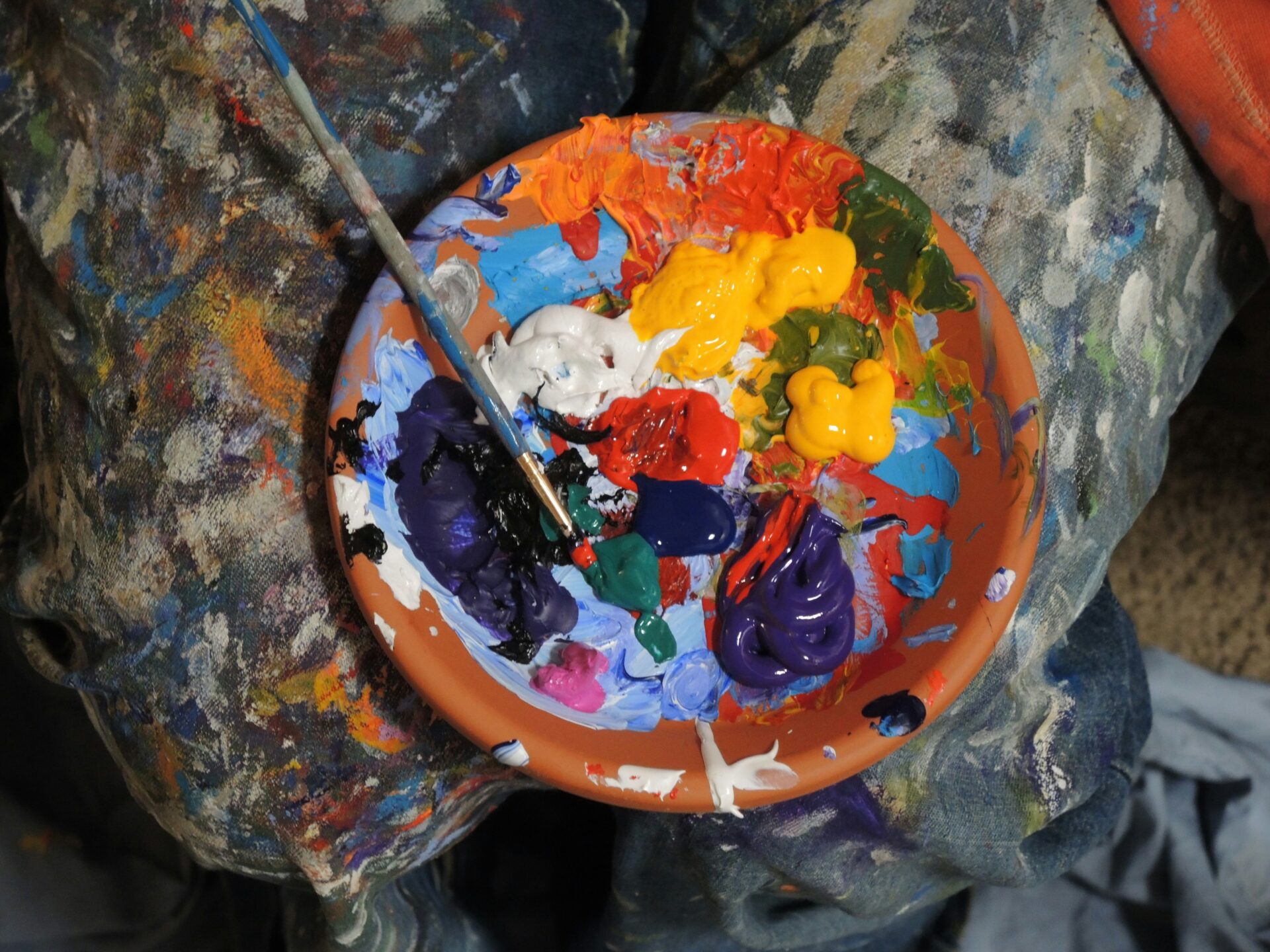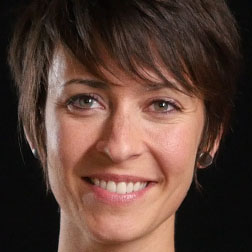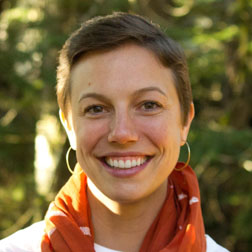I love to paint. I love bringing ideas to life on canvas through colour, pattern, movement and light.
However, lately I’ve been challenging myself to move into new territory – to loosen up, take more risks, and let things emerge rather than arrive at a predetermined destination.
And this new work? Let’s just say, I don’t love it.
My teacher would say something like – “Great! That means you’re in new territory.”
While I understand this in theory, the experience is painful.
You suck. You’re not a real artist. The only way you can do this is if you work really hard at it and cover up all your mistakes and make sure it’s neat, tidy, and polished.
I notice how those habits of tight control and micromanagement that show up in the creative process seem to show up everywhere. What’s that saying – The way you do one thing is the way you do everything?
Substitute ‘making art’ for ‘facilitating’ – or many other activities.
As facilitative leaders, many of us have the tendency to overprepare and over-rely on a pool of ‘stock phrases’ and ‘stock moves’, that get in the way of the listening and responding to what’s actually happening in the moment.
The practical invitation then is something like – ‘prepare less, listen deeply, and trust more.’
Sounds fantastic. So why would something so seemingly simple be so hard to practice?
There seems to be a pernicious little trope out there, that when you learn to ‘let go’ and step off the ledge of certainty – you’ll somehow start flying.
You’ll pleasantly surprise yourself. Perhaps an intuition or intervention will pour through you in a comment or facilitative move in a way that triggers a breakthrough in the conversation, or brings in more movement and flow into a group process.
Or your creativity will be finally unleashed on the canvas and you’ll start churning out masterpieces.
And yes, this does happen.
But a lot of times, it doesn’t. Sometimes it spectacularly doesn’t happen, especially at the beginning, when you start to experiment with new moves or work in unfamiliar, more challenging contexts.
When you choose to take a risk, say the thing, let go of the plan, interrupt yourself before a ‘stock phrase’ comes out of your mouth and you pause and let yourself do nothing while the process is in chaos and everyone is staring expectantly at you….
What would happen if you instead expected to stumble, flake out, flail, and potentially make things worse in the moment – in front of everyone?
Because being willing to grow means being willing to ‘suck’. It means having the courage to suck. By normalizing this, the less ouchy it will be when you inevitably do something that goes sideways and are tempted to retreat back to dry land forever.
This isn’t to downplay your mastery and assume you’re not capable of leading while also learning.
And it doesn’t mean you’ll suddenly throw out everything you’ve learned and enter all of your engagements with a beginner’s mind. Or you should place your own learning above your professional commitments.
But when you move into the advanced territory of facilitative leadership, where you work with the stickier parts of group process – the power dynamics, the simmering conflicts, or the collective navigating of change and complexity and AI and volatile markets and pandemics – you’ll need peers and mentors to practice with in an environment where the trust is high and the stakes are low.
You need others who can lovingly mirror back to you that which you can’t see as easily – your genius, your edges, and the places where you’re still emerging – clunkiness, fumbling and all.
Our programs are designed with that intention – to offer a ‘safe enough’ learning container for you and your peers to try on new ways of being, practice risk-taking, self-reflection, receive feedback, and to continue to iterate with new tools and awareness.
So – whether it’s alongside us or another community of practice, I encourage you to seek out those learning contexts where you get to try on new identities.
When you give yourself permission to try the thing that in retrospect looks and feels, well, cringey – just know that on the other side of that micro ego-death is an identity less tied to your expertise and more to your depth of presence, range, and ability to truly serve the moment.
So let’s dispel the myth that your brilliance will surface right away once you stop doing the things that are holding you back. Then you’ll have a little more breathing room to suck – one painting, one conversation, and one group engagement at a time.
And – the next time you do manage to disrupt an old pattern while facilitating – but find yourself uncertain what to do next – here are a few things you can try:
- Take a breath and a moment to celebrate internally (you just intervened in a habit – yay!)
- Offer a recap of what has been shared in the last few minutes (this will have a grounding/clarifying effect on everyone, including you).
- Invite a short break
- Ask the group – “What’s a great question you’d love to hear right now?” or “How can I best support you in this moment?”
- Name it – “I’m feeling uncertain about what to do right now – Is anyone else feeling similarly?’
What are some moves that you make when you find yourself teetering on your own learning edge?
Amanda Suutari is a Certified Integral Facilitator®, educator, and visual ‘artivist’ based in ancestral and unceded M’i’kmaq territory (Nova Scotia). You can learn more about her work at amandasuutari.com.


